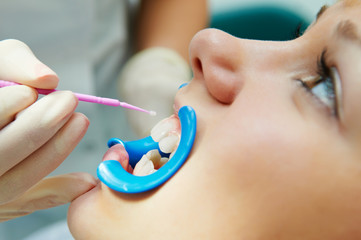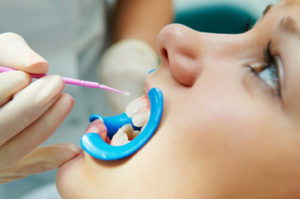Benefits of Dental Sealants to Help Prevent Cavities
They might sound new to you, but dental sealants have been around since the 1960s. over the years, they have greatly improved in preventing the buildup of bacteria and acids that lead to tooth decay. Dental sealants are a thin plastic coating applied to the chewing surface of the teeth, creating a smooth surface across the fissures and pits. These parts of the teeth are hard to keep clean, making it easy to accumulate food particles and increasing the risk of developing cavities.
First introduced in the early 1900s, dental sealants have come a long way when it comes to the benefits they offer, as well as the material and techniques used in their application. Dental sealants are particularly recommended among children today, as they are at a higher risk of tooth decay. Teenagers can also benefit from them, especially once their new adult molar teeth start to come out. Learn of its most important benefits and realize why your children – and even you – should consider getting them.
Protection from Food and Plaque
Dental sealants work around the clock to protect the protective enamel of the teeth. they give protective coverage so that food particles and plaque do not build up on the teeth, particularly on hard-to-reach areas like the back molars. When sealants are applied to cover the fissures and pits of the teeth, you are spared from more serious oral health problems like cavities, root canal therapy, and the need for crowns, among many others.
Fast and Painless Application
Getting dental sealants applied to your teeth is practically painless. When applying dental sealants, the dentist will first take a small brush and apply liquid resin onto the biting surfaces of every tooth. The dentist will wait for a few seconds until the resin dries, after which the teeth can now be rinsed. This procedure is quick and painless and is one of the biggest benefits of getting dental sealants.
Good Oral Care Routine Support
Even when you have the most meticulous brushing and flossing routine, there is still a chance that you were not able to get into all the crevices and cracks of your back teeth. Dental sealants can be very effective when it comes to keeping out plaque and harmful food particles from hard-to-reach areas of your mouth, especially since it can be a challenge to remove them with simple brushing and flossing.
Long-Lasting Protection
One of the most common questions about dental sealants is how long these last. Depending on their quality and how you take care of them, sealants can last for up to 10 years. Regular visits to your dentist are important so they check the condition of the sealants from time to time. Over time, the sealants can wear out or even chip and will have to be assessed if repair or replacement is needed.
Easy Repair and Maintenance
Another reason getting dental sealants is a good move is that any problems that you might encounter with them – like chipping or wearing out – can easily be addressed. Depending on the kind and extent of the damage, your dentist will just add more sealant as necessary to ensure optimal protection against tooth decay and cavities.
Often Covered by Insurance
Because dental sealants give excellent protection against cavities, many health insurance companies cover the cost of getting them. Check with your personal insurance coverage if you plan on getting this procedure. If you are interested in getting dental sealants, schedule an appointment with a reputable dentist in your area now for more information on who can get dental sealants, how they are applied to the teeth, and how long they can last.






 |
|